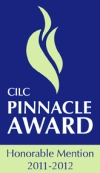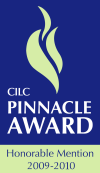You likely already know about commercial contract cheating (e.g., term paper mills, essay mills, assignment completion services, and so on.) It seems some companies behind these services are pursuing a new line of business, targeting educators. Companies are targeting graduate student teaching assistants (TAs) and faculty members offering “grading” assistance. Grading is a term we use a lot in Canada, but it can also be called marking or assessing. Although this is a new twist on contract cheating, it would stand to reason that this type of service might be called contract grading, but that term already exists in Canada and the United States and it has an entirely different meaning, so I have dubbed this service “ghost grading”.
With ghost grading, third party commercial entities offer to do grading for TAs and profs on their behalf.
It seems to work like this: a company approaches the TA or instructor individually, often via e-mail. The company offers to provide grading services for a fee. The company operates as a third party to complete grading work on behalf of instructors, who pay a fee to outsource this work.
Instructors and TAs are being pitched on the idea that the rate they pay for sub-contracting out grading duties is less than their own hourly rate would be, so they are gaining back time to work on other, more interesting projects.
The prof or TA makes a private side deal with a third party company. The educators give the company their learning management system (LMS) login credentials and their grading is “taken care of” by the contractor.
These companies sometimes allege or insinuate they are reaching out to the TA or the prof with the permission of the administration or the school. Of course, this isn’t at all the case. The school administration might have no idea this is happening, or at least, not until after it has been discovered. By that point, might be considered misconduct on the part of the TA or academic staff member who has engaged with one these companies and dealt with as such.
Remember, contract cheating companies are predatory and they care about one thing: generating profit, lots and lots of profit.
They are known for having sophisticated marketing and they know exactly what messages to send to get new customers. A naïve teaching assistant who actually believed that the company is operating with the permission of the administration can be completely duped and even though they might be committing an act of misconduct by engaging with the company, they might also be a victim of the scam.
So far, I can find little documented about this phenomenon, but I am hearing increasing reports of it happening. If you have been approached by a company offering such services, please feel free to reach out to me. In Part 2, I’ll share more about this practice and its impact.
Read more:
Ghost Grading: Part 2 – Examining Possible Legal Loopholes in Canada
Related posts:
- Scholarships Without Scruples: 3 Signs of Bogus Scholarships and Scams
- How to Deal with Contract Cheating: A Collection of Resources
- Shadow Courses and their Impact on Academic Integrity
- New book! Plagiarism in Higher Education: Tackling Tough Topics in Academic Integrity
______________________
Share or Tweet this: Ghost Grading: Part 1 – A New Twist on Contract Cheating – https://drsaraheaton.wordpress.com/2021/08/19/ghost-grading-part-1-a-new-twist-on-contract-cheating/
This blog has had over 2 million views thanks to readers like you. If you enjoyed this post, please “like” it or share it on social media. Thanks!
Sarah Elaine Eaton, PhD, is a faculty member in the Werklund School of Education, and the Educational Leader in Residence, Academic Integrity, University of Calgary, Canada.
Opinions are my own and do not represent those of the University of Calgary or anyone else.


